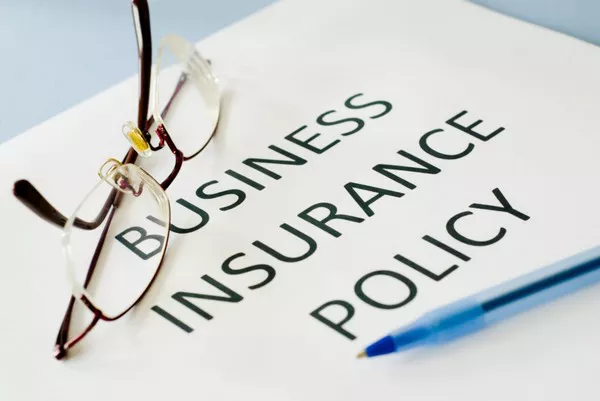Homeownership brings a sense of security and stability to individuals and families. However, it also entails responsibility, including the potential for liability in certain situations. Homeowners liability coverage is a crucial component of a comprehensive insurance policy, offering protection against financial losses stemming from lawsuits. In this article, we will delve into the intricacies of homeowners liability coverage, exploring its purpose, coverage limits, common situations covered, exclusions, the claims process, and additional coverage options.
Definition of Homeowners Liability Coverage
Homeowners liability coverage is designed to safeguard homeowners from legal and financial repercussions arising from accidents or incidents that result in bodily injury or property damage to others. This type of insurance provides coverage for legal defense costs, settlements, and judgments if the homeowner is found liable for damages.
The primary purpose of homeowners liability coverage is to shield policyholders from the potentially devastating financial consequences of lawsuits. Without adequate liability protection, homeowners risk significant out-of-pocket expenses, which could jeopardize their financial stability and assets. By having liability insurance in place, homeowners can mitigate the financial risks associated with unforeseen accidents or incidents on their property.
Coverage Limits
Typical homeowners liability insurance policies offer coverage limits ranging from $100,000 to $500,000, although higher limits may be available for an additional premium. The amount of coverage required depends on various factors, including the value of the homeowner’s assets, the perceived risk of liability, and personal preferences.
Several factors can influence coverage limits, such as the size and location of the property, the presence of potential hazards (e.g., swimming pools, trampolines), and the homeowner’s lifestyle. Additionally, homeowners may opt to purchase umbrella insurance to supplement their liability coverage, providing an extra layer of protection beyond the limits of their primary policy.
Common Situations Covered
Homeowners liability coverage extends to various scenarios where the homeowner may be held liable for injuries or damages, including:
1. Bodily injury to others on your property: If a guest slips and falls on an icy driveway or trips over a loose rug in your home, resulting in injuries, your liability insurance can cover medical expenses, legal fees, and potential settlements.
2. Property damage caused by you or your family members: Accidental damage to a neighbor’s fence, vehicle, or other property caused by you or a family member (e.g., your child accidentally hitting a baseball through a neighbor’s window) may be covered under your liability policy.
3. Dog bites and other pet-related incidents: Liability insurance typically covers dog bites and other injuries caused by household pets. However, some insurance policies may exclude coverage for certain breeds or impose breed-specific restrictions.
4. Personal injury claims: Homeowners liability coverage may also protect against personal injury claims arising from incidents such as defamation (libel or slander), invasion of privacy, or false arrest.
Exclusions
While homeowners liability coverage provides broad protection, certain situations and events are typically excluded from coverage. These exclusions may include:
1. Intentional acts: Liability insurance does not cover intentional acts or deliberate harm caused by the homeowner or their family members.
2. Business activities: Homeowners liability coverage generally excludes liability arising from business activities conducted on the property. Business owners should secure separate liability insurance for their business operations.
3. Car accidents: Liability insurance for vehicles is separate from homeowners insurance. Car accidents, including those that occur on the homeowner’s property, are typically not covered under homeowners liability insurance and are instead handled through auto insurance policies.
Claims Process
In the event of an incident that may result in a liability claim, homeowners should promptly notify their insurance company. The claims process typically involves the following steps:
1. Report the incident: Contact your insurance provider as soon as possible to report the details of the incident, including the date, time, location, and parties involved.
2. Provide documentation: Provide any relevant documentation, such as photos, witness statements, and medical records, to support your claim.
3. Cooperate with the investigation: Your insurance company will investigate the claim to determine liability and assess the extent of damages. Cooperate fully with the claims adjuster assigned to your case.
4. Settlement negotiations: If you are found liable for damages, your insurance company will handle settlement negotiations with the affected parties on your behalf. This may involve negotiating a financial settlement or defending against a lawsuit in court.
5. Resolution: Once a settlement is reached or a judgment is rendered, your insurance company will cover the applicable costs, up to the limits of your policy.
Additional Coverage Options
For homeowners seeking additional liability protection beyond the limits of their primary policy, umbrella insurance offers a viable solution. Umbrella insurance provides excess liability coverage above and beyond the limits of homeowners, auto, or other primary insurance policies. With umbrella insurance, homeowners can safeguard their assets against catastrophic losses resulting from lawsuits.
Conclusion
In conclusion, homeowners liability coverage is a critical aspect of protecting one’s financial well-being and assets. By understanding the purpose, coverage limits, common situations covered, exclusions, claims process, and additional coverage options associated with homeowners liability insurance, homeowners can make informed decisions to ensure they have adequate protection in place. As accidents and incidents can occur unexpectedly, investing in comprehensive liability coverage provides peace of mind and financial security for homeowners and their families.


